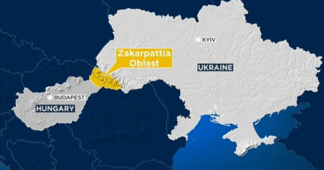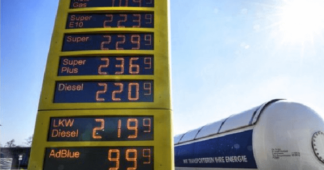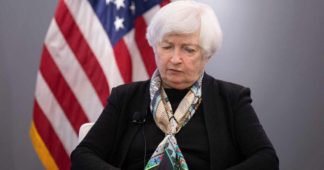May 9, 2022
In its sixth sanction package aimed against Moscow, the EU plans to phase out Russian crude oil within six months and refined products by the end of the year, according to von der Leyen.
But Hungary and other Eastern European countries, whose economies are largely reliant on Russian oil, are not ready yet to accept the sixth sanction package in its current form.
Hungarian Prime Minister Viktor Orban met with Ursula von der Leyen, president of the European Commission (EC) here on Monday, reaching no agreement yet over the proposed Russian oil embargo.
“This evening’s discussion with PM Viktor Orban was helpful to clarify issues related to sanctions and energy security,” von der Leyen tweeted following the 90-minute-long working dinner at Orban’s residence in the Castle District of the Hungarian capital.
“We made progress, but further work is needed. I will convene a VC (video conference) with regional players to strengthen regional cooperation on oil infrastructure,” she added.
An unnamed European Union (EU) source said on Monday that the EC was considering offering funds to landlocked Eastern EU states such as Hungary, Slovakia and the Czech Republic to modernize their oil infrastructure in order to persuade them to accept the Russian oil embargo.
In its sixth sanction package aimed against Moscow, the EU plans to phase out Russian crude oil within six months and refined products by the end of the year, according to von der Leyen.
But Hungary and other Eastern European countries, whose economies are largely reliant on Russian oil, are not ready yet to accept the sixth sanction package in its current form.
“Discussions with the EC president Ursula von der Leyen ended, the topic was of course the next round of sanctions in Brussels and its impact on Hungary and the Hungarian economy,” said Peter Szijjarto, the Hungarian Minister of Foreign Affairs and Trade, who also took part at the meeting.
“This round of sanctions in Brussels would cause enormous problems for Hungary if it came into force, because Hungary’s energy supply is secure now, but the adoption of this sanctions package would compromise our energy security, because it would be impossible for us to obtain enough oil,” Szijjarto said in a video message posted on his Facebook page.
“As long as the EC does not offer a solution to these problems, of course Hungary cannot support this series of sanctions,” he said.
We remind our readers that publication of articles on our site does not mean that we agree with what is written. Our policy is to publish anything which we consider of interest, so as to assist our readers in forming their opinions. Sometimes we even publish articles with which we totally disagree, since we believe it is important for our readers to be informed on as wide a spectrum of views as possible.











